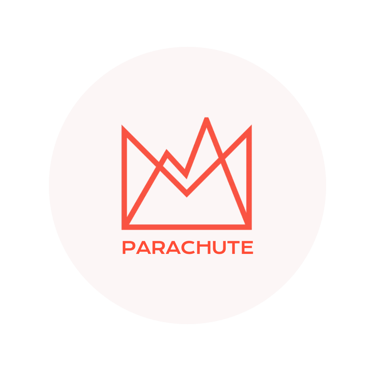The 5 Essential Tools to Boost Your Business Growth
Every business and entrepreneur should equip themselves with the right tools to maximize their potential. This article reveals the 5 essential tools that will transform your approach to growth.
BUSINESS DEVELOPMENTDÉVELOPPEMENT DES AFFAIRESMARKETING
Parachute
4/12/20256 min read


In a world where technology is evolving at a lightning-fast pace, digitalization has become a must for any online advertising agency facing competition and the demand for targeted advertising performance. Digital transformation is no longer just an option—it is a vital necessity to optimize digital advertising strategies, automate campaigns, reduce operational costs, and improve overall performance. Modern businesses must adapt quickly to new technologies to optimize their processes, reduce operational costs, and enhance overall performance. Digitalization not only allows the automation of repetitive tasks but also enables large-scale data analysis for more informed decision-making.
The importance of digitalization in modern businesses
Today’s consumers, targeted by increasingly personalized ads, expect seamless digital experiences. An online advertising agency specializing in programmatic targeted advertising must adopt high-performing digital tools. Digitalization helps create more targeted marketing strategies and build stronger customer relationships through better data management. It also provides the flexibility to adapt to market trends and changing consumer behaviors.
In addition, digitalization improves collaboration and communication within teams. With digital tools, employees can work together more efficiently, even remotely. This fosters innovation and speeds up problem-solving—critical for staying competitive in the market. In short, digitalization is an essential lever for the growth of any modern business, as it enables greater agility, better customer understanding, and maximization of growth potential.
According to Statistics Canada, in 2023, 7% of Canadian businesses with five or more employees used AI software or hardware, an increase of 3 points since 2021. Among them, 6% of small businesses (+3 points) and 8% of medium-sized businesses (+2 points) used AI.
Tool #1: Project management software
For an online advertising agency specializing in targeted digital advertising, project management software is essential for optimizing efficiency, coordination, and meeting deadlines. Tools like Trello, Asana, or Microsoft Project allow you to plan, organize, and track tasks through interactive dashboards, reduce unnecessary meetings, and improve internal communication. They can integrate with automation tools like Make and Microsoft Power Automate to automate workflows between your project management tools, CRM, advertising platforms, and analytics tools. Power BI complements the ecosystem by turning project management data into dynamic, actionable dashboards. As of 2025, 12.2% of Canadian companies were using AI to produce goods or services, highlighting a strong trend toward adopting advanced technologies in process management.
These tools break projects into smaller tasks, set deadlines, and track progress in real time. They also facilitate communication between team members by centralizing information and allowing discussions directly on tasks or projects, reducing misunderstandings and improving coordination.
Additionally, these tools offer reporting and analytics features to measure performance and identify areas for improvement. They provide valuable data on time spent per task, potential bottlenecks, and deviations from the original plan. By leveraging this information, companies can adjust strategies and optimize processes to ensure project success. Ultimately, project management software is indispensable for any company looking to improve resource management and achieve objectives faster.
Tool #2: CRM (Customer Relationship Management) tools
CRM tools are crucial for any company seeking to strengthen customer relationships and improve customer service. A CRM centralizes all client-related information, tracks their interactions with the company, and manages sales opportunities. Solutions like Salesforce, HubSpot, or Zoho CRM offer advanced features to automate sales processes, personalize communications, and analyze customer data.
With a CRM, businesses can provide a more consistent and personalized customer experience. These tools allow segmentation based on purchasing behavior, preferences, or interaction history. This makes it possible to target customers with relevant offers and messages, increasing conversion and loyalty. A CRM also helps track the customer journey and identify key touchpoints for action to improve satisfaction.
For instance, Salesforce, HubSpot, or Zoho CRM are indispensable for centralizing client data, orchestrating personalized advertising campaigns, and optimizing loyalty. A HubSpot training (inbound marketing & CRM) reinforces this approach by automating nurturing processes—essential for an online programmatic B2B advertising agency. Combining CRM with long-tail SEO optimized for digital agencies also attracts highly targeted leads and strengthens campaign effectiveness.
According to Statistics Canada, 88.2% of people employed in Canada’s private sector work for SMEs, underscoring the importance of equipping these businesses (and digital agencies) with the right CRM tools to manage customer relationships and drive growth.
Finally, CRM tools also facilitate collaboration between sales, marketing, and customer service teams. They enable real-time information sharing and coordinated efforts for quick and effective client responses. Integrating CRM with marketing automation platforms or data analytics tools gives companies a 360-degree view of their clients, allowing for better decision-making.
Tool #3: Marketing automation solutions
Marketing automation solutions are powerful tools that streamline marketing efforts by automating repetitive tasks. They help manage campaigns, segment audiences, and track performance more efficiently. Platforms like Marketo, Pardot, or Mailchimp offer robust features for automating emails, social media posts, and lead nurturing workflows.
With marketing automation, companies can create more targeted and personalized campaigns. These tools allow audience segmentation based on browsing behavior, past interactions, or demographics, sending relevant messages at the right time to boost engagement and conversions. They also nurture leads throughout the buying cycle with content tailored to each stage.
Platforms like Marketo, Pardot, or Mailchimp automate campaigns, segment audiences, and analyze effectiveness—critical for an online advertising agency focused on high-performing digital ads. AI marketing training helps integrate advanced automation algorithms, while tools like Copilot (assisted writing) and Gemini (multimodal creation) optimize personalized visual and text content creation. AI-driven marketing automation usage in Canada grew from 15.2% in 2024 to 23.1% in 2025.
These solutions also offer advanced analytics to measure campaign effectiveness and identify improvement areas. Detailed reports on open rates, clicks, conversions, and ROI enable data-driven optimization of marketing strategies and resource allocation.
Tool #4: Data analytics tools
Data analytics tools are essential for companies seeking informed decision-making. They collect, process, and analyze large data volumes to extract valuable insights.
With analytics tools, companies better understand customer behavior and optimize strategies accordingly. They track KPIs in real time and measure the impact of actions taken. For example, analyzing website traffic data can reveal top-performing pages, the most effective traffic sources, and friction points in the user journey—allowing targeted improvements to boost engagement and conversions.
Tools like Google Analytics, Tableau, or Power BI are vital for analyzing user behavior, tracking KPIs, and anticipating trends. Power BI training enhances the ability to visualize marketing performance, ROI, and CRM data. Integration with other tools (CRM, automation) provides a 360° performance view. As of 2025, 12.2% of businesses were using AI for functions beyond production (text, data, chatbots), highlighting the importance of AI-assisted analytics.
Tool #5: Online collaboration platforms
Online collaboration platforms are essential for improving communication and coordination within teams, especially in the context of increasing remote work. These platforms centralize communications and documents, making information access easier and reducing data loss risks.
They enable dedicated discussion channels for projects or departments, real-time file sharing, and direct document collaboration. This fosters better organization, transparency, and overall project success.
Solutions like Slack, Microsoft Teams, or Trello help online advertising agencies centralize exchanges, collaborate effectively remotely, and maintain campaign consistency. Integrated with CRM, project management, or automation tools, they create a smooth digital ecosystem. For enhanced security, basic cybersecurity training is essential to protect sensitive client data. Statistics show that over three-quarters of Canadian SMEs see adopting digital technologies as a way to prepare for the future—71% adopted digital tools in 2024, and 66% reported cost savings as a result.
How to choose the right tools for my business ?
Start by identifying your specific needs and challenges. Make a list of must-have features and problems you want to solve. Research available options, compare features, pricing, and user reviews, and request demos or trials to test usability. Ensure compatibility and easy integration with existing systems.
Involve your teams in the selection process to ensure quick adoption and effective use.
Case studies: Businesses that succeeded thanks to these tools
Company X adopted Slack to centralize communications, reducing unnecessary meetings and improving responsiveness, resulting in higher productivity and employee satisfaction.
Company Y implemented Salesforce CRM to centralize customer data, segment audiences, and automate marketing campaigns—leading to higher sales and customer loyalty.
Company Z leveraged HubSpot marketing automation to automate emails, segment audiences, and monitor campaigns in real time, improving conversion rates and ROI.
Summary of the tools and how they can help your business
Professional expertise + AI support = high-quality content
Share this article:
Related reading: How Canadian SMEs Can Thrive in the Digital Age ?
Conclusion and Next Steps for Your Business
In conclusion, adopting the right digital tools is essential to boosting your company’s growth. Project management software, CRM tools, marketing automation solutions, data analysis tools, and online collaboration platforms are must-haves for optimizing your operations, improving efficiency, and maximizing growth. By choosing the right tools and integrating them effectively into your organization, you can transform your development approach and stand out in the market.
The next steps for your business involve assessing your specific needs, conducting thorough research on available options, and involving your teams in the selection process. Don’t forget to request demonstrations or free trials to evaluate the tools’ performance and check their compatibility with your existing systems. By following these steps, you can ensure a successful adoption and efficient use of digital tools.
Finally, stay attuned to technological developments and emerging market trends. Digital transformation is an ongoing process, and it is essential to remain agile and adaptable to fully seize the opportunities offered by new technologies. By investing in the right tools and taking a proactive approach to digital transformation, you can propel your business to new heights and ensure its long-term success.


ADDRESS
Studio Parachute|360 Agency
Montréal, Québec, Canada
2023 All rights reserved to Parachute 360 Studio-Agency S.A./ Our terms and conditions /Privacy policy
